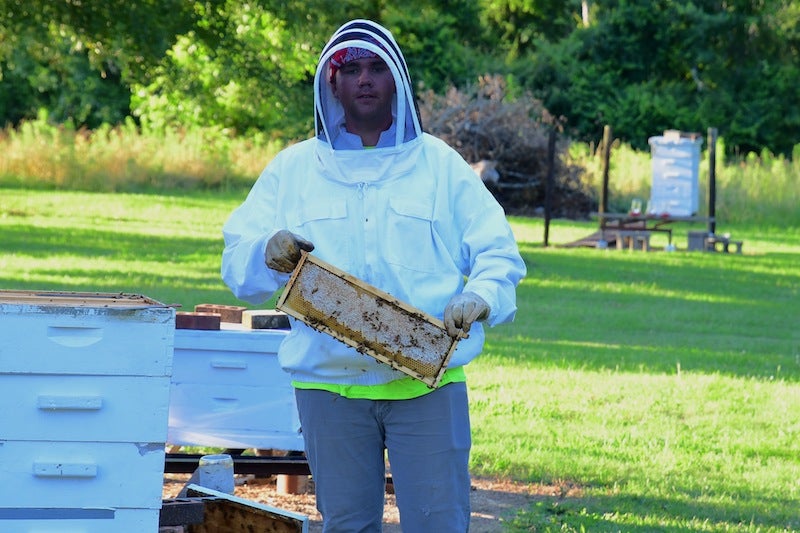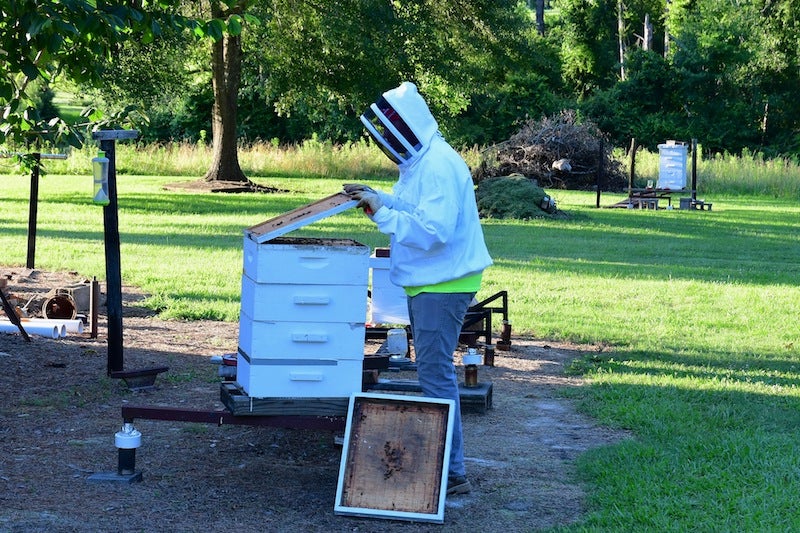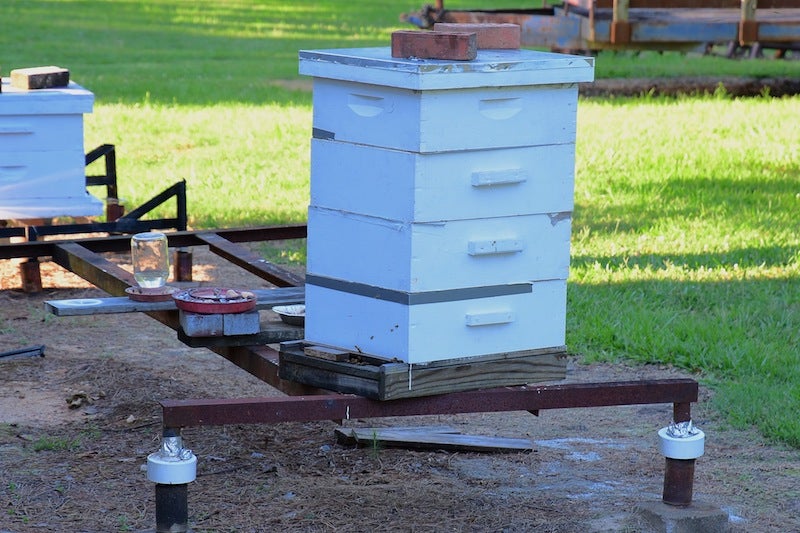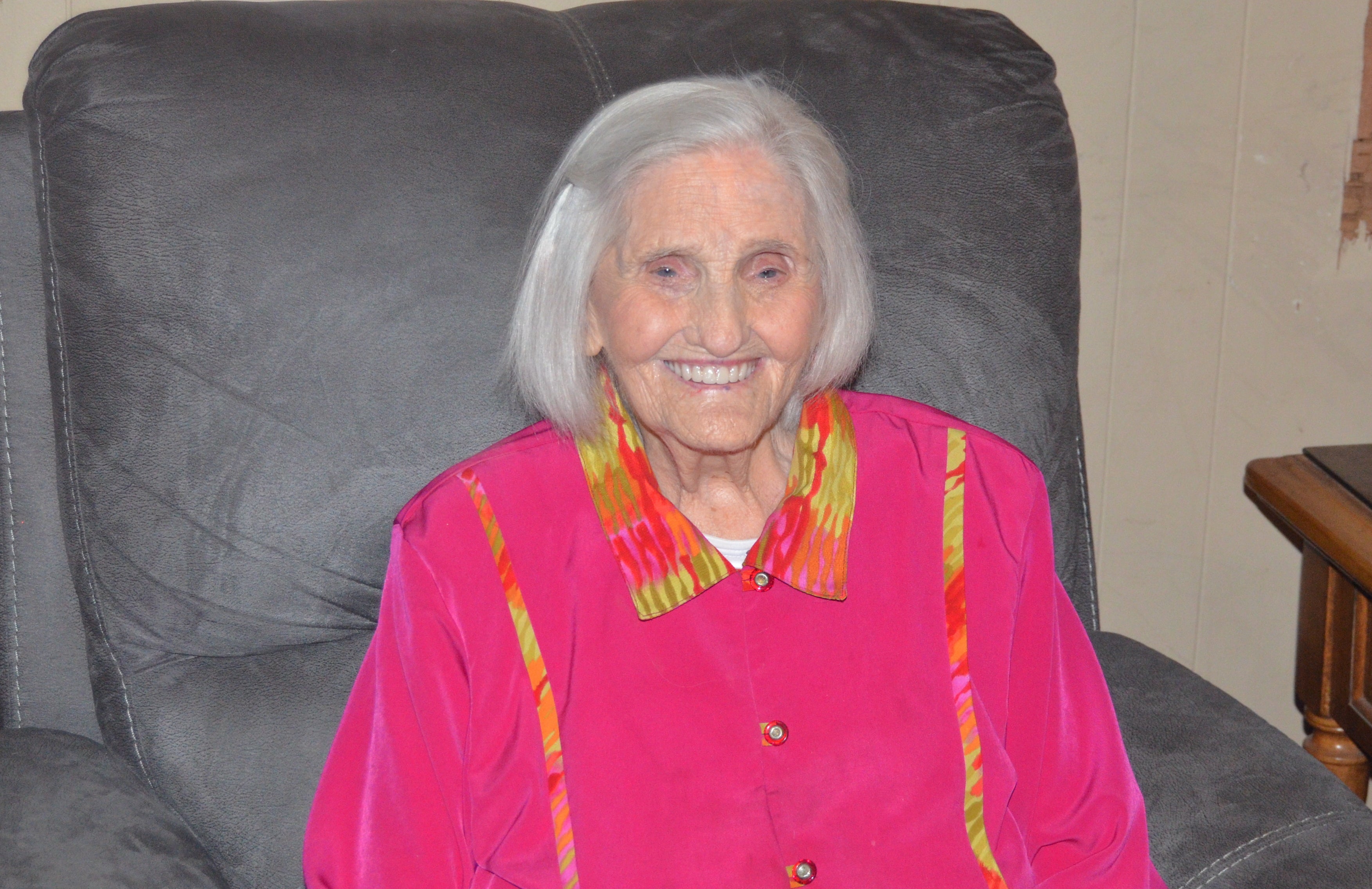Beeing more prepared
Published 1:32 pm Thursday, June 17, 2021
|
Getting your Trinity Audio player ready...
|
By JERRETT POSEY/ Intern
Beekeeping has been passed down from one generation to the next for as long as people have grown crops.
One example of this is Carson Littleton of Jemison and his grandfather. The two began keeping honeybees in 2012 and love working with them.
Even while working all day every day, a bee will only produce about a teaspoon of honey in its lifetime.
According to The Bee Conservancy’s official website, worker bees will spend their lives tending to the queen, protecting the hive and caring for the larvae.
Littleton and his grandfather keeping bees and growing a garden together is much like how bees prepare the next generation. However, caring for the bees is not always easy, according to Littleton.
“If farmers spray their crops when they are in bloom, it can drastically affect the bee population,” Littleton said. “Most farmers know this and avoid spraying their crops during this time, but there may still be some that don’t know.”
Many of the bees’ favorite trees have been cut down in the area, making it difficult for them to find everything they need. While these issues can make keeping the bees difficult, it does help promote problem solving.
Since there are fewer sources of nectar in the wild, the Littletons started growing a garden to help the bees have enough to survive and make honey. Although one garden may not completely solve the issue, it does help, and also serves as a source of fresh vegetables for the family.
Bee keeping has its ups and down, but the Littleton family plans to continue passing it down to the next generations. For those interested in honeybees or beekeeping, go to the Chilton County Beekeepers Association webpage or look them up on Facebook.









